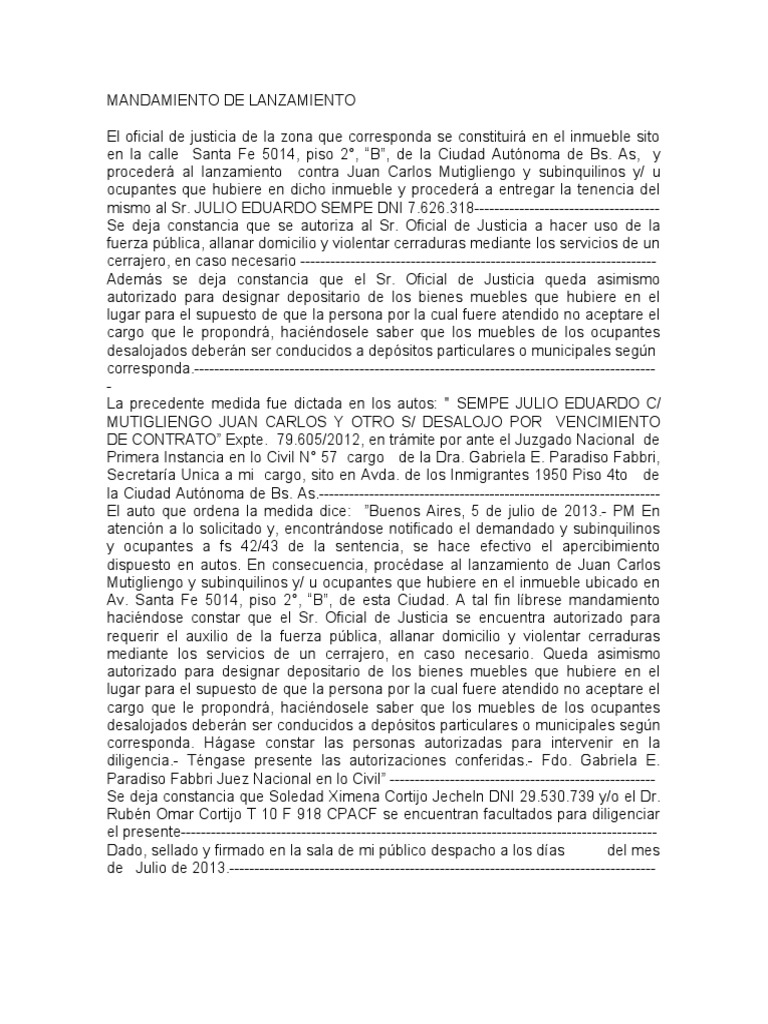Feminine noun. From the Latin culpa, fault.
In Legal Spanish culpa refers to the omission of the due diligence, which implies that the resulting harmful fact motivates civil or criminal liability.
From culpa we have two different adjectives: a. culposo, as in delito culposo, which is an unintentional act or omission that causes harm to a person; in other words, it is a harmful act done without dolo, that is, without having a malicious intention of committing harm to another; and b. culpable, translated as guilty. dc
La palabra del día: Acción
Feminine noun. In Legal Spanish acción is the right to go to a judge or court seeking the protection of a right or an interest. A demanda is an acción judicial and the verb is accionar. The person is the actor or demandante (claimant) and the party that has been sued is called demandado.
In Business Spanish, acción is the title that represents an aliquot part in the capital of company and that gives the right to a proportional part in the distribution of benefits and to the corresponding patrimonial quota in the dissolution of the company. It is what in English is called a share. And a shareholder is an accionista. If we are speaking about shares of a SRL, we call them participaciones, and the shareholders are called socios. dc
La palabra del día: Mandamiento
Masculine noun, from mandar, to command.
In Legal Spanish, a mandamiento is the document in which a judicial order is written to be sent to whom it may concern. It is not the order itself but the document or the piece of paper where that order is written to be enforced.
For example, a judge, in a sentence, orders an eviction (un lanzamiento), then:
1. The lawyer of the interested party writes the mandamiento to be sent to the person who is meant to be evicted and quotes the part of the sentence where the eviction is ordered.
2. The same lawyer leaves the mandamiento in the reception area of the court to be checked and signed by the court secretary, not the judge, because the secretary is also a notary.
3. Once the mandamiento is checked and signed, the lawyer collects it and takes it to the Oficina de Mandamientos y Notificaciones. All the above is called diligenciamiento del mandamiento.
4. The Oficina de Mandamientos y Notificaciones is formed by oficiales de justicia, each one of them covers a specific territory of the judiciary department. The oficial de justicia chooses a slot and informs the lawyer when the eviction is going to take place. The lawyer may or may not decide to go.
5. The day of the eviction, the oficial de justicia may require the help of the police force or a locksmith.
We call the oficial de justicia ‘cartero de lujo‘, luxury post person, because they have very wide power to make their job.
On another note, the ten commandments are called in Spanish los diez mandamientos; but that is not legal. dc

La palabra del día: Audiencia
A feminine noun, from the Latin audientĭa, people who hear. Its lexical components are audire (to hear), –nt– (agent) and the suffix -ia (quality).
In Legal Spanish, audiencia refers to the occasion to adduce reasons or evidence that is offered to an interested party in a trial or proceedings, usually in front of a judge or tribunal. If the audiencia is used to disclose the proof offered in the demanda or contestación de demanda, we are speaking about an audicencia probatoria, that can be an audiencia testimonial, confesional or pericial.
In Spain, Audiencia, with capital A, is the highest tribunal in a province, for example: Audiencia Provincial (AP) de Málaga. Also, the Audiencia Nacional is a centralised court in Spain with jurisdiction over all the Spanish territory. It is specialised in a certain scope of delinquency, having original jurisdiction over major crimes such as those committed against the Crown and its members, terrorism, forgery of currency, credit and debit cards and checks, some trade crimes committed in more than one region and over drug trafficking, food frauds and medical frauds committed in a nationwide level as well as over international crimes which come under the competence of Spanish courts. As you can see, it is all about hearing.
By the way, to speak about the audience of a concert, in Spanish we prefer to say auditorio, although audiencia is also used. dc
La palabra del día: Persona
A feminine noun, from the Latin persōna, this one from the Etruscan phersu which was borrowed from the ancient Greek prósopon, the mask worn by an actor to play their character (personaje in Spanish) and expand their voice: pros (in front of) opon (face) in the theatre. We can see that from its very origin the term persona expresses a fiction.
In Legal Spanish, a persona is an individual to whom the law grants the capacity to obtain rights and to be subjects of legal obligations. My Private Law teacher used to say that a persona is an imputation centre of rights and obligations. This means that we can have two types of personas: a persona física : Juan, Pedro, Mario, etc.; and a persona moral or jurídica: a school, a corporation, or any kind of organisation with personalidad jurídica, which is the ability to obtain rights and to be subject of legal obligations. As we can see, we are again in front of a (legal) fiction (ficción jurídica). A curiosity, the new Codígo Civil y Comercial in Argentina, in its article 19, renamed personas físicas as personas humanas; a bit more explicit. dc






